| Selo | Vernon Art and Science |
|---|---|
| Edição | 0 |
| Idioma | Inglês |
| Autores | Anthony F. Shaker |
| Acabamento | Capa Dura |
| Quantidade de Páginas | 586 |
| Origem | Literatura Estrangeira |
 Limites e dissonâncias da razão comunicativa: sinceridade, gramaticalidade e arte em J. Habermas
Limites e dissonâncias da razão comunicativa: sinceridade, gramaticalidade e arte em J. Habermas
ediPUCRS
R$ 89,90 à vista O que você está fazendo com a sua vida? (2406)
O que você está fazendo com a sua vida? (2406)
ACADEMIA
R$ 56,90 à vista Arqueologias do fantasma: (técnica, cinema, etnografia, arquivo)
Arqueologias do fantasma: (técnica, cinema, etnografia, arquivo)
Relicário
R$ 55,90 à vista Personagens conceituais: filosofia e arte em Deleuze
Personagens conceituais: filosofia e arte em Deleuze
Relicário
R$ 49,90 à vista A dívida impagável
A dívida impagável
Zahar
R$ 119,90 ou até 2x sem juros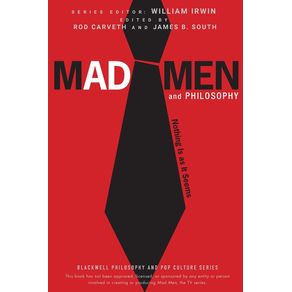 Mad Men and Philosophy
Mad Men and Philosophy
John Wiley & Sons
R$ 142,00 ou até 2x sem juros Outlines of Logic; an English Translation of Trendelenburgs Elementa Logices Aristoteleae
Outlines of Logic; an English Translation of Trendelenburgs Elementa Logices Aristoteleae
Legare Street Press
R$ 105,13 ou até 2x sem juros The Analyst
The Analyst
Legare Street Press
R$ 140,98 ou até 2x sem juros Justice Interruptus
Justice Interruptus
Taylor & Francis Ltd
R$ 564,95 ou até 3x sem juros The Essential Henry David Thoreau Collection
The Essential Henry David Thoreau Collection
Filibooks ApS
R$ 159,20 ou até 3x sem juros Treatise of Daoist Magic
Treatise of Daoist Magic
DAXUAN International
R$ 123,06 ou até 2x sem juros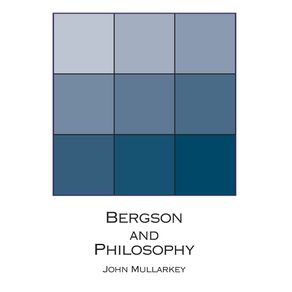 Bergson and Philosophy
Bergson and Philosophy
Longleaf Services Univ of Notre Dame du Lac
R$ 280,99 ou até 3x sem juros Short Works
Short Works
Parmenides Traditional Philosophy Foundation
R$ 144,81 ou até 2x sem juros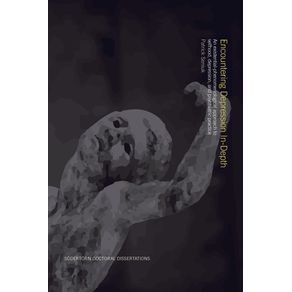 Encountering Depression In-Depth
Encountering Depression In-Depth
Sodertorn University
R$ 178,39 ou até 3x sem juros The New Bhagavad-Gita
The New Bhagavad-Gita
Author Reputation Press, LLC
R$ 141,15 ou até 2x sem juros O que você está fazendo com a sua vida? (2406)
O que você está fazendo com a sua vida? (2406)
ACADEMIA
R$ 56,90 à vista Personagens conceituais: filosofia e arte em Deleuze
Personagens conceituais: filosofia e arte em Deleuze
Relicário
R$ 49,90 à vista O que é o conhecimento?: uma introdução à epistemologia
O que é o conhecimento?: uma introdução à epistemologia
ediPUCRS
R$ 59,90 à vista Livro na borogodança
Livro na borogodança
Fólio Digital
R$ 56,00 à vista The Seven Generations and The Seven Grandfather Teachings
The Seven Generations and The Seven Grandfather Teachings
James Vukelich
R$ 112,85 ou até 2x sem juros Thoughts on Life and Religion
Thoughts on Life and Religion
Legare Street Press
R$ 169,57 ou até 3x sem juros Justice Interruptus
Justice Interruptus
Taylor & Francis Ltd
R$ 564,95 ou até 3x sem juros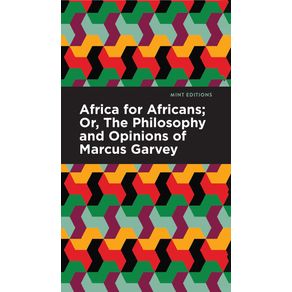 Africa for Africans
Africa for Africans
Mint Editions
R$ 189,05 ou até 3x sem juros Treatise of Daoist Magic
Treatise of Daoist Magic
DAXUAN International
R$ 123,06 ou até 2x sem juros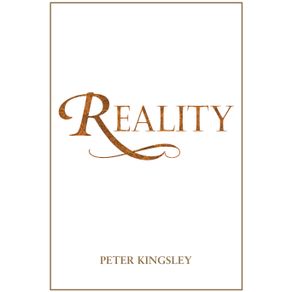 REALITY (New 2020 Edition)
REALITY (New 2020 Edition)
Peter Kingsley
R$ 281,82 ou até 3x sem juros The Bhagavad Gita (Royal Collectors Edition) (Annotated) (Case Laminate Hardcover with Jacket)
The Bhagavad Gita (Royal Collectors Edition) (Annotated) (Case Laminate Hardcover with Jacket)
Engage Books
R$ 302,05 ou até 3x sem juros Self-Reliance, Nature, and Other Essays (Royal Collectors Edition) (Case Laminate Hardcover with Jacket)
Self-Reliance, Nature, and Other Essays (Royal Collectors Edition) (Case Laminate Hardcover with Jacket)
Engage Books
R$ 304,73 ou até 3x sem juros Short Works
Short Works
Parmenides Traditional Philosophy Foundation
R$ 144,81 ou até 2x sem juros Encountering Depression In-Depth
Encountering Depression In-Depth
Sodertorn University
R$ 178,39 ou até 3x sem juros The New Bhagavad-Gita
The New Bhagavad-Gita
Author Reputation Press, LLC
R$ 141,15 ou até 2x sem juros Limites e dissonâncias da razão comunicativa: sinceridade, gramaticalidade e arte em J. Habermas
Limites e dissonâncias da razão comunicativa: sinceridade, gramaticalidade e arte em J. Habermas
ediPUCRS
R$ 89,90 à vista Personagens conceituais: filosofia e arte em Deleuze
Personagens conceituais: filosofia e arte em Deleuze
Relicário
R$ 49,90 à vista A questão do estético: ensaios
A questão do estético: ensaios
ediPUCRS
R$ 49,90 à vista O que é o conhecimento?: uma introdução à epistemologia
O que é o conhecimento?: uma introdução à epistemologia
ediPUCRS
R$ 59,90 à vista O futuro da criação e da humanidade: leituras científico-teológicas a partir da crise ecológico-humana
O futuro da criação e da humanidade: leituras científico-teológicas a partir da crise ecológico-humana
ediPUCRS
R$ 54,90 à vista The Philosophy of Loyalty
The Philosophy of Loyalty
Legare Street Press
R$ 200,40 ou até 3x sem juros Philosophie des Unbewussten
Philosophie des Unbewussten
Legare Street Press
R$ 335,85 ou até 3x sem juros The Analyst
The Analyst
Legare Street Press
R$ 140,98 ou até 2x sem juros Philosophical Lectures and Remains of Richard Lewis Nettleship. Volume 1
Philosophical Lectures and Remains of Richard Lewis Nettleship. Volume 1
Legare Street Press
R$ 284,48 ou até 3x sem juros Thoughts on Life and Religion
Thoughts on Life and Religion
Legare Street Press
R$ 169,57 ou até 3x sem juros Africa for Africans
Africa for Africans
Mint Editions
R$ 189,05 ou até 3x sem juros Ethnophilosophy and the Search for the Wellspring of African Philosophy
Ethnophilosophy and the Search for the Wellspring of African Philosophy
Springer Nature B.V.
R$ 337,20 ou até 3x sem juros REALITY (New 2020 Edition)
REALITY (New 2020 Edition)
Peter Kingsley
R$ 281,82 ou até 3x sem juros Self-Reliance, Nature, and Other Essays (Royal Collectors Edition) (Case Laminate Hardcover with Jacket)
Self-Reliance, Nature, and Other Essays (Royal Collectors Edition) (Case Laminate Hardcover with Jacket)
Engage Books
R$ 304,73 ou até 3x sem juros The New Bhagavad-Gita
The New Bhagavad-Gita
Author Reputation Press, LLC
R$ 141,15 ou até 2x sem juros